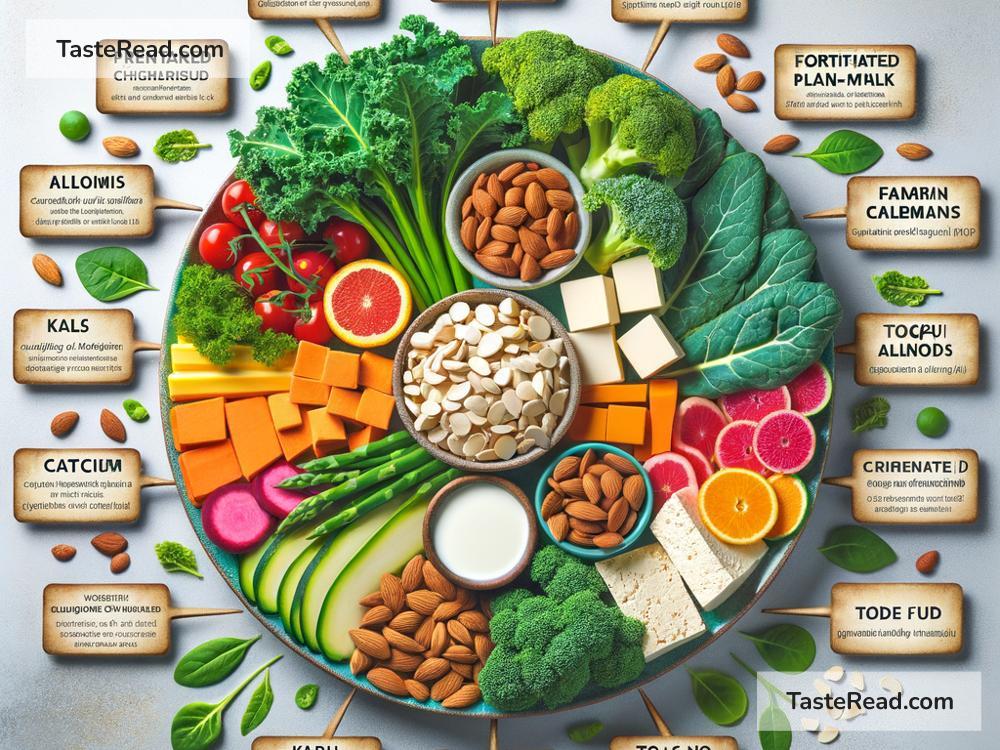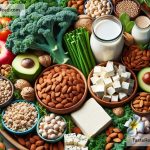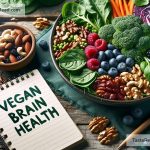Vegan Diet and Bone Health: Is There a Connection?
Transitioning to a plant-based lifestyle comes with its bundle of health promises and environmental benefits. However, amidst the enthusiasm for adopting a vegan diet, concerns about its impact on our bone health frequently come up. Is ditching animal products a risk to our bones? Let’s delve into this topic and uncover the connection between a vegan diet and bone health.
The Basics of Bone Health
Our bones are not just lifeless structures. They’re living, dynamic tissues that provide structural support, protect our organs, store minerals, and are the framework for our mobility. Key nutrients like calcium, vitamin D, protein, magnesium, and vitamin K play crucial roles in maintaining bone density and overall bone health. Traditionally, many of these essential nutrients are associated with animal products. So, it’s natural to wonder: can a vegan diet provide all these?
Calcium and Vitamin D: The Cornerstones of Bone Health
Calcium is often hailed as the building block of bones, while vitamin D is celebrated for its role in calcium absorption and bone growth. Critics of vegan diets argue that excluding dairy and fish, primary sources of these nutrients, could compromise bone health. However, plant-based sources of calcium and vitamin D exist. Leafy greens, fortified plant milks, tofu, and almond butter are excellent vegan calcium sources. Meanwhile, vitamin D can be absorbed through sun exposure and fortified foods. Thus, with proper planning, vegans can meet their calcium and vitamin D needs.
The Protein Puzzle
Protein’s role in bone health is a bit complex. While essential for bone structure and repair, excessive animal protein intake has been linked with calcium loss through urine. Plant proteins, conversely, may not have the same effect. Foods like lentils, beans, quinoa, and tempeh are not only rich in protein but also come packed with other bone-friendly nutrients, creating a win-win situation for vegans who are mindful of their protein sources.
Other Nutrients on the Vegan Plate
Vegans often consume higher amounts of magnesium and vitamin K, found in nuts, seeds, and green leafy vegetables, which are beneficial for bone health. Potassium, another nutrient abundantly present in fruits and vegetables, helps neutralize acid loads in the body, protecting calcium stores in bones. It’s clear that a well-planned vegan diet can be rich in bone-friendly nutrients.
The Research Says
Multiple studies have explored the impact of vegan diets on bone health with mixed results. Some research suggests that vegans might have slightly lower bone mineral density compared to non-vegans. However, this does not automatically translate to a higher risk of fractures if the difference is minimal. Importantly, lifestyle factors like physical activity, smoking, and alcohol consumption also significantly influence bone health, irrespective of diet.
It’s crucial to note that the quality and variety of a vegan diet play significant roles. A diet rich in whole foods, fruits, vegetables, nuts, seeds, and legumes is vastly different from a vegan diet laden with processed foods. Additionally, attention to nutrient intake, especially calcium, vitamin D, and protein, and possibly supplementing when necessary, can help mitigate potential risks.
Practical Tips for Bone-Healthy Vegan Eating
- Diversify Your Plate: Include a variety of fruits, vegetables, whole grains, nuts, and seeds in your meals to cover the spectrum of bone-healthy nutrients.
- Fortify Wisely: Choose fortified plant milks and juices to boost your intake of calcium and vitamin D.
- Soak in the Sun: Vitamin D is crucial, and sunlight is a great natural source. Aim for responsible sun exposure to help with vitamin D synthesis.
- Consider Supplementation: Depending on your dietary choices and lifestyle, you might benefit from a supplement, especially for vitamin D and possibly calcium. Consult a healthcare provider for personalized advice.
- Stay Active: Weight-bearing and muscle-strengthening exercises are pivotal for maintaining strong bones.
Conclusion
A vegan diet, when carefully planned, does not inherently doom you to poor bone health. Like any diet, its impact on bone health hinges on making informed food choices and ensuring a balanced intake of essential nutrients. By embracing a variety of whole, nutrient-rich plant foods and observing lifestyle habits conducive to bone health, vegans can thrive, boasting strong and healthy bones. Ultimately, the connection between a vegan diet and bone health is nuanced, but with mindfulness and planning, it can be a positive one.


